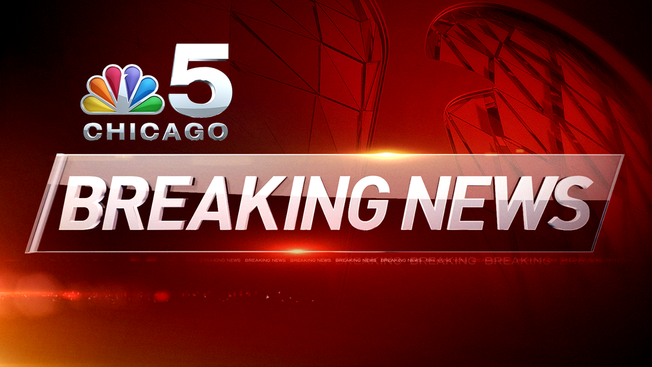Activists held a rally at Daley Plaza in downtown Chicago Sunday afternoon, then led a march through the Loop, marking the fourth consecutive day of protests in Chicago.
Sunday's rally, organized by Violence Interpreters, Freedom First International, and Midwest Coalition for Social Justice, was planned to "address national police brutality murders of Alton Sterling, Philando Castile, gun violence, and the dismal failure of Chicago police to stop its growing homicide level," according to a release.
"We want to bring a little bit more trust in the Department of Justice in particular, because they were given the task of helping bring an end to excessive force and police brutality nationwide, but so far we're not seeing any results," community activist Tio Hardiman said.
"Obviously something has to be done because this is an ongoing thing and the problem is it's increasing," said protester Bill Tongue. "People are talking about it but things aren't happening and people really have to take action."
The rally turned into a march through downtown Chicago around 2:45 p.m., with dozens of protesters carrying signs and chanting. Protesters briefly stopped traffic at Michigan Ave and Jackson Blvd, and confrontations with police officers grew heated. At least two protesters were arrested, according to the Chicago Police Department, with charges pending.
Sunday's protest comes just one day after activists marched for hours throughout the city's Loop, even attempting to "shut down" the Taste of Chicago.
On Saturday, protesters converged at Daley Plaza around 9 a.m., and at Millennium Park around 1:30 p.m. Participants at Millennium Park then embarked on a march through the city's Loop shortly thereafter.
Local
Protesters then attempted to "shut down" the Taste of Chicago around 4 p.m., kicking off at 325 S. Michigan Ave with activists making their way into the festival, linking arms, and chanting.
"No Justice, NO REVENUE!," the event description on Facebook read. "lets show the country that we are going to set the tone. No more being scared, now its time to stop losing this war."
While hundreds particpated in the march, even staging a die-in, the Taste of Chicago was not closed, and reactions at the festival were mixed. Some joined in the protest, while others thought it was the wrong approach.
After leaving the Taste of Chicago, protesters continued to march through Chicago's downtown area, staging sit-ins and blocking traffic at multiple locations throughout the city's Loop for several hours. At least 19 people were arrested in Saturday's protest, according to police.
The weekend's events followed days of protests throughout Chicago and across the country in response to the fatal police shootings of Philando Castile and Alton Sterling earlier in the week.
On Friday, activists staged a "die-in" near President Barack Obama's home in the Kenwood neighborhood. Hours later, religious leaders and even celebrities kicked off a peace walk from St. Sabina Catholic Church in the city's Auburn-Gresham neighborhood.
On Thursday, roughly 400 people marched in a demonstration organized by Black Lives Matter. The protest began on the city's South Side, briefly blocking traffic on the Dan Ryan Expressway during the evening rush hour.
Castile, 32, was killed Wednesday night during a traffic stop in Minnesota. His girlfriend, who recorded the aftermath of the shooting, said Castile did “nothing but what the police officer asked of us, which was to put your hands in the air and get your license and registration.”
Sterling was killed during a confrontation with police in Baton Rouge, Louisiana. His death was recorded, with footage appearing to show two officers tackling and shooting the 37-year-old outside a convenience store. The U.S. Department of Justice said it will investigate his death.
Thursday's protest organizers are also calling for an economic boycott on the Magnificent Mile on July 30.



